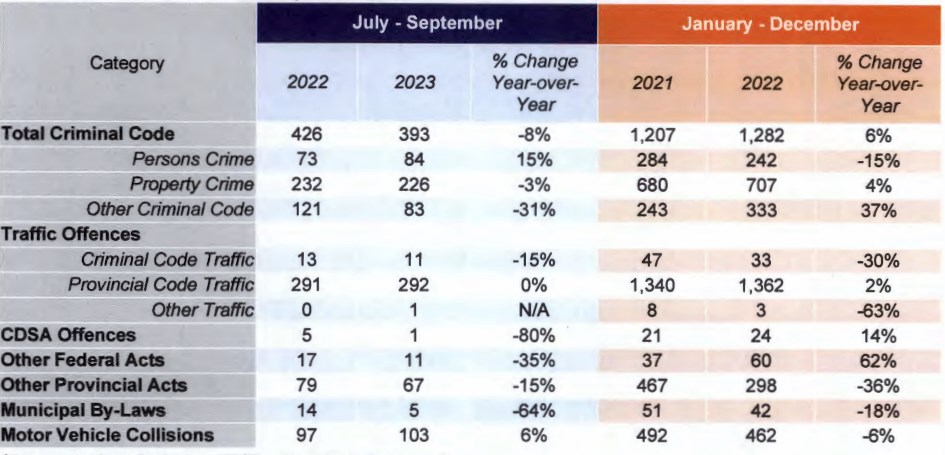ATHABASCA - Impaired driving and staffing shortages headlined the list of concerns for the local RCMP detachments during a presentation to Athabasca County, with all three units reporting a lack of manpower heading into the new year.
Staff Sgt. Mark Hall, who runs the Athabasca detachment, alongside sergeants Dennis Properzi of the Boyle RCMP and Lee Simpkins, who heads the integrated traffic unit, brought Athabasca County councillors up to date on what’s happening in the region during the county’s Dec. 12 meeting.
Both detachments in the area said they've seen an increase in impaired driving this month — Properzi said the Boyle detachment had three cases of impaired driving in the week leading up to the presentation, and Simpkins said his members had handed out four immediate roadside sanctions (IRS) and six immediate roadside cautions.
“Usually at this time of year, people that are a little inebriated are in the ditch, but not this year — it’s getting called in because they’re staying on the road,” said Properzi. “It’s not the bar crowd, it’s people coming to and from days off of work. We’re going to try and brainstorm on that and try to find more daytime checks of people transitioning from Fort McMurray.”
Another common struggle for the local Mounties is staffing — both Athabasca and Boyle are currently awaiting transfers into their respective detachments, but a shortage of recruits at Depot and a lack of affordable short-term housing are contributing to the issue.
“We’ve found the rental fees are quite high for what they offer, and we end up losing prospective members if they can’t afford the rent,” said Staff Sgt. Mark Hall. “We’re short-staffed again — one of our corporals transferred out, he’s on his way to New Brunswick. Another member is transferring to the forensics unit.”
Despite the short-term staffing crunch,Staff Sgt. Mark Hall said the detachment is building upon its positive reputation — the corporal position attracted five applications, as opposed to the “one or none,” its seen in the past.
“Athabasca is starting to be one of the places that people are wanting to start to come to,” said Staff Sgt. Mark Hall
County Reeve Brian Hall, of no relation to the RCMP officer, said the county had a role to play in helping secure affordable housing for local professionals.
“There’s a lot of housing in the county as well, and in terms of the overall housing strategy, we need to make sure we’re a competitive place to build,” said Brian Hall. “Things like this transitional home (for healthcare professionals) in the off time, could be used to transition members of the RCMP into the community.”
Lower crime rates
The RCMP are currently at the tail end of their third quarter, so the official stats the officers brought with them were a little outdated. Instead, Staff Sgt. Mark Hall, Properzi, and Simpkins updated councillors on what had happened since their last visit in early November.
“From last year to this year, county-wide specifically, we saw a 32 per cent decrease in persons crimes, and a 16 per cent decrease in the amount of property crimes,” said Staff Sgt. Mark Hall. “They’re not really centred in any location; they range from Athabasca South all the way down to the Rochester area.”
Despite the decrease, Staff Sgt. Mark Hall said the detachment is encouraging people to give them a call regardless of the severity of the issue — after an under-reported September crime wave led to the M.D. of Opportunity No. 17 declaring a state of local emergency, Hall has been stressing the importance of people reporting crimes to the police.
“We did see an 11 per cent decrease in the overall number of files — that could be a good thing, because crimes are not happening or being prevented, or it could be that some people are not reporting things because it might be a nuisance to them. We’re still dealing with getting the message out that that information is key to help us be effective at our jobs here.”


